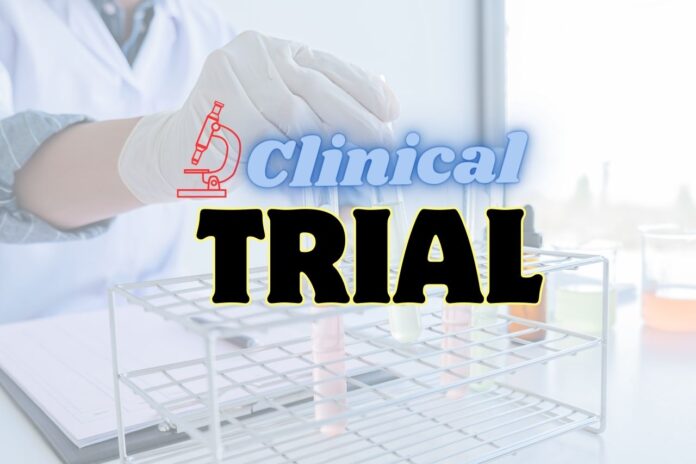Last Updated on October 11, 2024 by The Health Master
Clinical Research
The pharmaceutical industry in India stands at a critical juncture, contemplating strategic moves to enhance the global competitiveness of Clinical Research Organizations (CROs).
A recent study commissioned by the Department of Pharmaceuticals (DoP) suggests that the government should consider exempting CRO services from the goods and services tax (GST) to foster a more level playing field for Indian pharmaceutical companies.
In this article, we delve into the key recommendations of the study and explore additional measures to tap into the burgeoning global CRO market.
Understanding the Disparity: A Taxing Issue
1. The Risk-Reward Dilemma
The study emphasizes the inherent risk and capital intensity of pharmaceutical innovation.
While global giants allocate nearly 18.56% of their revenues to research and development, Indian counterparts, mainly generic-focused, exhibit limited risk appetite.
2. GST Disparity: A Barrier to Growth

Under the existing tax framework, global entities working with Indian CROs enjoy GST exemptions, while domestic pharmaceutical companies face an 18% GST on CRO services.
This creates an uneven playing field, hindering the growth of indigenous pharmaceutical innovation.
Policy Reforms: Bridging the Gap
3. Exemption from GST: A Game-Changer
To address the GST imbalance, the study proposes exempting CRO services from GST for domestic companies.
This measure aims to alleviate the financial burden on pharmaceutical firms, freeing up more funds for essential research and development.
4. Streamlining Regulatory Approvals for clinical research.
The study advocates for streamlining the regulatory approval process for early-stage research projects.
Reducing bureaucratic hurdles and providing research grants and financial incentives can catalyze the growth of domestic CROs engaged in early discovery and clinical research.
5. International Regulatory Harmonization
Acknowledging the streamlined processes in major markets like the US and Europe, the study suggests India align its regulatory environment for clinical research / trials and drug development.
Clear guidelines, inspired by successful models, can attract more global pharmaceutical companies to engage with Indian CROs.
Global Market Outlook: Seizing the Opportunity
6. Post-Pandemic Growth
Post-2014 regulatory reforms in India’s pharmaceutical and CRO sector have positioned it for substantial growth.
The global contract research outsourcing market is anticipated to grow at a CAGR of 7%, reaching $90.4 billion by 2030, with clinical development outsourcing contributing a significant $61.2 billion.
7. CRO Sector’s Ascension in India
The CRO sector in India has been growing at a CAGR of 10.75% and is projected to reach $2.5 billion by 2030. Identifying and capitalizing on emerging opportunities will be crucial for sustaining and accelerating this growth.
Government Initiatives: Paving the Way Forward
8. Independent Studies and Recommendations
Under the Pharmaceutical & Medical Devices Promotion and Development Scheme (PMPDS), the DoP initiated an independent study to understand the challenges faced by CROs in India.
The recommendations include international collaborations, dedicated CRO clusters, and strategic global positioning.
9. Incentives for CROs
Government-funded research parks should provide dedicated space and incentives like concessional tax rates and export subsidies to CROs.
Encouraging collaboration between CROs, academic institutions, and sponsors can foster innovation and knowledge exchange.
10. Marketing India as a Global Hub
The government should take proactive marketing initiatives to position India as a preferred destination for pharmaceutical discovery and research.
Shifting the focus from being just a market to actively promoting collaboration in early discovery, preclinical, and clinical research can create substantial opportunities for CROs.
FAQs:
Q1: How will exempting CRO services from GST benefit Indian pharmaceutical companies?
Exempting CRO services from GST will reduce the financial burden on Indian pharmaceutical companies, providing them with more resources for research and development.
Q2: What are the expected growth trends in the global CRO market post-2022?
The global contract research outsourcing market is projected to grow at a CAGR of 7%, reaching $90.4 billion by 2030, with clinical development outsourcing contributing $61.2 billion.
Q3: How can the government encourage collaboration between CROs and other stakeholders?
Incentives, dedicated spaces, and fostering collaboration between CROs, academic institutions, and sponsors can create a conducive environment for innovation and knowledge exchange.
Q4: What role do international collaborations play in the recommendations for the CRO sector?
International collaborations are recommended for regulatory harmonization, creating dedicated CRO clusters, and positioning India globally as a destination for drug discovery and development.
Q5: Why is it essential for India to focus on being a hub for pharmaceutical discovery and research?
By actively promoting collaboration in early discovery, preclinical, and clinical research, India can create significant opportunities for CROs, moving beyond being just a market for global pharmaceutical companies.
Disclaimer: This article contains information derived from the source mentioned below. Our team utilized an AI language model to rewrite and present the news or article in a unique format.
Forms: All types of Clinical Trials
Schedules: All types of Clinical Trials
Latest Notifications: New Drugs and Clinical Trials
Other details about New Drugs, FDCs, Clinical trial
List of approved FDCs (Fixed Dose Combinations) Updated
FAQ-dt-18-02-2020-CDSCO-on-New-Drugs-and-Clinical-Trial
FAQ-dt-23-08-19-CDSCO-on-New-Drugs-and-Clinical-Trail
Indian Pharma Industry Faces Regulatory Scrutiny
Drug alert: 61 out of 1105 samples declared as NSQ in October 2023
National Pharmacy Commission Bill 2023: A Critical Examination
USFDA Approval granted for Generic Dapagliflozin Tablets
Drug recall: These drugs recalled due to manufacturing issues
Chemists Association Raises Alarms on Anomalies in Drug Price Control
CDSCO Guidelines on Drug Recall
Gist of 31 Chapters on Schedule M
USFDA approval granted for Levetiracetam Oral Solution: Strides








